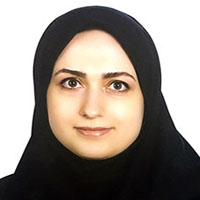Sensitivity, Specificity, and Accuracy of the Persian Version of 3rd Edition of the Gilliam Autism Rating Scale (GARS- 3): A Descriptive Study
In recent years, an increase in the prevalence of autism spectrum disorder (ASD) has made it to be one of the significant neurodevelopmental disorders, and well-timed diagnosis for effective intervention has always been emphasized. Using the tools with desirable psychometric features for the considered population is one of the diagnostic ways of the disorder. The goal of the study was to specify sensitivity, specificity, and accuracy of 3rd version of GARS-3 edition (Gilliam autism rating scale- 3) in Persian.
This descriptive research is of authentication type. The statistical sample was selected from four provinces in 2019- 2020 and included 3- 22 year-old people; out of which 117 were autistic, 55 deaf, 94 mental retarded, and 52 normal. The data was collected from the sample group and GARS (2013) questionnaire then was analyzed by descriptive indexes.
The results indicated that for both 4 and 6-point scales in accuracy index, the maximum amount for the autistic and normal groups was 0.93, and the minimum amount for the autistic and mental retarded ones was 0.76. In specificity index, the maximum amount for the autistic and normal groups was 0.90, and the minimum amount for the autistic and mental retarded ones was 0.52, and finally for sensitivity index the amount was 0.95.
With regard to the achieved results of 3 significant psychometric scopes, using this type of screening tool to diagnose ASD in Iranian kids is advised. Although using other psychometric findings is also emphasized.
-
Effectiveness of monotheistic integrated family-based treatment program on increasing psychological well-being and self-esteem in drug-addicted men
Hosein Abouzari, Gholamali Afrooz*, Seyed Saeid Por Naghash Motlaq Tehrani,
Journal of Psychological Sciences, Sep 2025 -
Diagnostic Validity of the Persian version of 3rd edition of the Gilliam Autism Rating Scale (GARS-3)
, *, ,
Alborz University Medical Journal, Spring 2025 -
The Effectiveness of the Multimedia Phonological Awareness Program on the Phonological Awareness of Students with Borderline Intellectual Functioning
Samira Saeidi Zaranji, Saeed Hasanzade *
Developmental Pscychology, -
Investigating the Effectiveness of Geldard Group Play Therapy Combined with Drug Control on Impulsivity of Children with Attention-Deficit/Hyperactivity Disorder
Seyyedeh Sahra Hosseini, Mohsen Saeidmanesh*,
Middle Eastern Journal of Disability Studies, -
Gilliam Autism Rating Scale Psychometric Characteristics Investigation for Diagnosing People as Having Autism in the Iranian Community
, *, ,
Alborz University Medical Journal, -
Bilingualism in Iranian Educational system
Kazem Shademan *, Aref Baykan,
Journal of Pouyesh in Education and Consultation,





